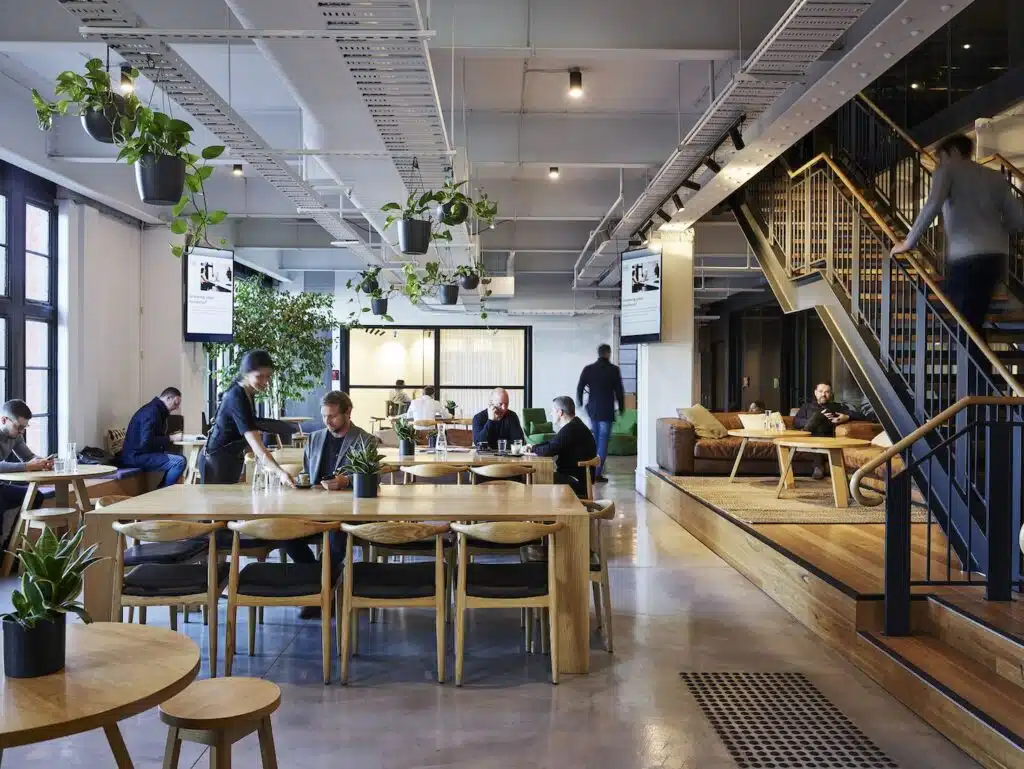As the needs of consumers, landlords, and occupiers rapidly develop and evolve, new products and terminology are emerging throughout corporate and commercial real estate, aiming to fill their needs and inform audiences of their new options.
Why is commercial real estate terminology changing?
Commercial real estate differs from traditional real estate, with new markets and audiences emerging regularly.
Whereas 15 years ago almost all corporate real estate was operated through traditional leases, nowadays occupiers are prioritising flexibility.
This has led to the emergence of flexible workspace providers like Hub Australia, offering alternatives to traditional leases that allow corporate businesses of all sizes, as well as government departments, to adapt to rapidly-changing situations.
The changing landscape of corporate and commercial real estate requires new language and terminology to describe and market these newer products and options.
What are some of the new terms being used?
We’ve put together a list of some of the new corporate and commercial real estate terminology being used in Australia – although by no means an exhaustive list, this is a great resource to learn more about the products and spaces available in the market.
Coworking
Coworking has developed into an umbrella term for flexible workspaces, largely used to describe BYOD (bring your own device) spaces that provide everything else you will need during your workday. Some coworking spaces are dedicated to hotdesking, but others (like Hub Australia) offer offices, suites, and dedicated desks alongside hotdesking and breakout spaces.
Flexible Workspaces
As well as encompassing the flexibility of physical workspace options, Flexible workspaces often offer flexible terms for their members – whether you’re after a short or long-term space for a single person or rapidly-growing team.
Many also operate in multiple locations to offer flexibility – Hub Australia currently provides members 7 locations across Australia, with further sites opening in a range of areas in coming years.
Core Workspaces
Core Workspaces are similar to a ‘headquarters’ – a core location where a business or team can come together, with a permanent or semi-permanent office or dedicated space available for their use, usually in a central location such as a major city.
Although team members may utilise flexible options, their larger go-to is a core workspace, and likely the space they would hold meetings with external parties.
WFH – Work From Home
2020 has become a year of working from home for many – whether in a dedicated home office or a makeshift space, most Australian businesses have adjusted their operations to allow team members to work efficiently remotely.
NTH – Near to Home
Near-to-Home spaces provide an alternate option to working from home or travelling into the city for a core workspace. Near-to-Home spaces offer a middle ground, ideally located at a midpoint.
In metro spaces, this could look like a suburban space, designed for productivity and comfort and offering a secure, ergonomic, and distraction-free alternative to working from home.
Hub and Spoke
The term ‘Hub and Spoke’ is another way to refer to ‘core’ and ‘near-to-home’ spaces, with the core space recognised as the hub designed to bring people together and the near-to-home spaces (‘spokes’) existing away from the CBD, and closer to people’s homes.
This can provide additional value for larger businesses, offering flexibility to their teams and a more financially-viable option than a long-term commercial real estate lease.
Management Agreement
A management agreement is often between a landlord or property owner and a flexible space operator. Under the agreement, space is operated as flexible workspace by a specialist flex space operator for the mutual benefit of both parties, with varying terms available.
Hybrid Lease
A hybrid lease is an agreement between a property owner and a flexible space operator. With a long-term basis (10 to 15 years), hybrid leases include a fixed base rent as well as variable rent components likely to be based on the financial performance of the space. The flexible workspace operator commits in the lease to operate a set amount of space for the mutual benefit of each business.






